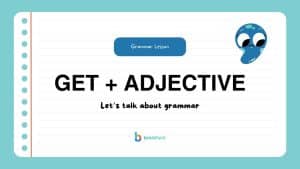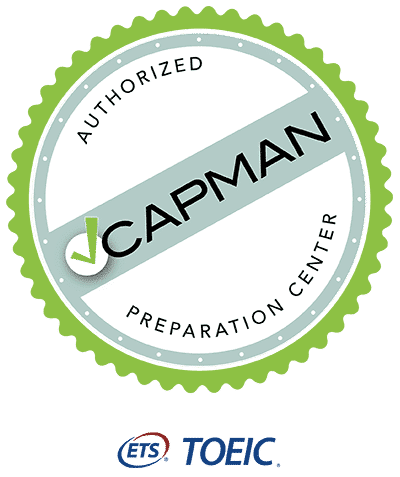Casi llegando al final de esta lista de ‘Irregular verbs‘ pero seguiremos repasando los verbos en inglés.
En esta página: sweep, swell, swim, swing, take, teach, tear, tell, think, thrive.
Como sabéis en el siguiente enlace tenéis la pronunciación de los verbos: http://www.shertonenglish.com/resources/es/irregular-verbs/irregular-verbs-17.php
 |
 |
 |
 |
 |
| to sweep | to swell | to swim | to swing | to take |
 |
 |
 |
 |
 |
| to teach | to tear | to tell | to think | to thrive |
| Present | Past | P. Participle | Traducción |
|---|---|---|---|
| sweep (suíip) |
swept* (suépt) |
swept* (suépt) |
barrer, azotar |
| swell (suél) |
swelled (suéld) |
swollen (suólen) |
hincharse, crecer, aumentar |
| swim (suím) |
swam (suáam) |
swum (suám) |
nadar |
| swing (suíng) |
swung (suáng) |
swung (suáng) |
balancear, mecer, colgar |
| take (téik) |
took (túuk) |
taken (téiken) |
tomar, llevar |
| teach (tíich) |
taught (tot) |
taught (tot) |
enseñar |
| tear (téar) |
tore (tóor) |
torn (tóorn) |
desgarrar, romper, arrancar |
| tell (tel) |
told (tóuld) |
told (tóuld) |
decir, contar |
| think (zink) |
thought (zot) |
thought (zot) |
pensar |
| thrive (zráiv) |
throve* (zróuv) |
thriven* (zríven) |
prosperar, crecer mucho, desarrollarse |
| Present: |
sweep (suíip)
|
|
|---|---|---|
| Past: | swept* (suépt) | |
| Past Participle: | swept* (suépt) | |
| Translation: | barrer, azotar | |
| The sweeper hasn’t swept our street yet. El barrendero no ha barrido nuestra calle aún. |
||
| In fall, I have to sweep the dead leaves every day. En el otoño, tengo que barrer las hojas muertas todos los días. |
||
| Strong winds sweep the cliffs of Dover. Vientos fuertes azotan los acantilados de Dover. |
||
| Present: |
swell (suél)
|
|
|---|---|---|
| Past: | swelled (suéld) | |
| Past Participle: | swollen (suólen) | |
| Translation: | hincharse, crecer, aumentar | |
| The saleslady was standing the whole day so her feet got swollen. La vendedora estuvo de pie el día entero entonces sus pies se hincharon. |
||
| The curtains swelled in the breeze. Las cortinas se hincharon en la brisa. |
||
| His leg swelled where the scorpion had stung him. Su pierna se hinchó donde el escorpión lo había picado. |
||
| Present: |
swim (suím)
|
|
|---|---|---|
| Past: | swam (suáam) | |
| Past Participle: | swum (suám) | |
| Translation: | nadar | |
| Two swans were swimming in the lake. Dos cisnes estaban nadando en el lago. |
||
| Betsy won’t get into the water because she can’t swim. Betsy no quiere entrar en el agua porque ella no sabe nadar. |
||
| The sailor jumped from the boat and swam to the shore. El marinero saltó del barco y nadó a la orilla. |
||
| Present: |
swing (suíng)
|
|
|---|---|---|
| Past: | swung (suáng) | |
| Past Participle: | swung (suáng) | |
| Translation: | balancear, mecer, colgar | |
| The girl sat on a stool swinging her legs. La muchacha se sentó en un taburete balanceando sus piernas. |
||
| The tennis player swung the racket to hit the ball. El jugador de tenis balanceó la raqueta para golpear la pelota. |
||
| The door swung open and the cowboy walked into the saloon. La puerta abrió de golpe y el vaquero entró en el bar. |
||
| Present: |
take (téik)
|
|
|---|---|---|
| Past: | took (túuk) | |
| Past Participle: | taken (téiken) | |
| Translation: | tomar, llevar | |
| The child was taken to see his mother in hospital. El niño fue llevado a ver a su madre en el hospital. |
||
| Take this dessert over to your grandmother’s. Lleva este postre a la casa de tu abuela. |
||
| Sarah was playing with a sharp knife so I took it away from her. Sarah estaba jugando con un cuchillo filoso, entonces se lo saqué. |
||
| Present: |
teach (tíich)
|
|
|---|---|---|
| Past: | taught (tot) | |
| Past Participle: | taught (tot) | |
| Translation: | enseñar | |
| Mrs. Collins teaches biology at my school. La Sra. Collins enseña la biología en mi escuela. |
||
| His father taught Daniel how to swim. Su padre le enseñó a nadar a Daniel. |
||
| She has taught English for many years. Ella ha enseñado inglés durante muchos años. |
||
| Present: |
tear (téer)
|
|
|---|---|---|
| Past: | tore (tóor) | |
| Past Participle: | torn (tóorn) | |
| Translation: | desgarrar, romper, arrancar | |
| I accidentally tore the fabric of my pants. Accidentalmente rasgué la tela de mis pantalones. |
||
| After reading a letter, Henry usually tears it into pieces. Después de leer una carta, Henry por lo general la rompe en pedazos. |
||
| The student has just torn a sheet of paper from his notebook. El estudiante acaba de rasgar una hoja de papel de su cuaderno. |
||
| Present: |
tell (tel)
|
|
|---|---|---|
| Past: | told (tóuld) | |
| Past Participle: | told (tóuld) | |
| Translation: | decir, contar | |
| The kindergarten teacher told the kids a beautiful story. La profesorade jardín de infantes les contó a los niños una historia hermosa. |
||
| Have I told you that Harold is getting married? ¿Te he dicho que Harold se casa? |
||
| People don’t believe him for he’s always telling lies. La gente no le cree porque siempre está contando mentiras. |
||
| Present: |
think (zink)
|
|
|---|---|---|
| Past: | thought (zot) | |
| Past Participle: | thought (zot) | |
| Translation: | pensar | |
| What do you think of this book? Do you like it? ¿Qué piensas de este libro? ¿Te gusta? |
||
| I can’t make a decision now. Let me think about it. No puedo tomar una decisión ahora. Déjeme pensar en ello. |
||
| She thought for a moment but couldn’t solve the problem. Ella pensó por un momento, pero no pudo solucionar el problema. |
||
| Present: |
thrive (zráiv)
|
|
|---|---|---|
| Past: | throve* (zróuv) | |
| Past Participle: | thriven* (zríven) | |
| Translation: | prosperar, crecer mucho, desarrollarse | |
| New restaurants thrive in this trendy neighborhood. Los nuevos restaurantes prosperan en esta moderna vecindad. |
||
| Few animals have ever thriven in captivity. Pocos animales se han desarrollado alguna vez en cautiverio. |
||
| His company throve and became the biggest in the country. Su compañía prosperó y se convirtió en la más grande del país. |
||
* Se puede conjugar también como un verbo regular (terminación “ed”)










Comentarios recientes